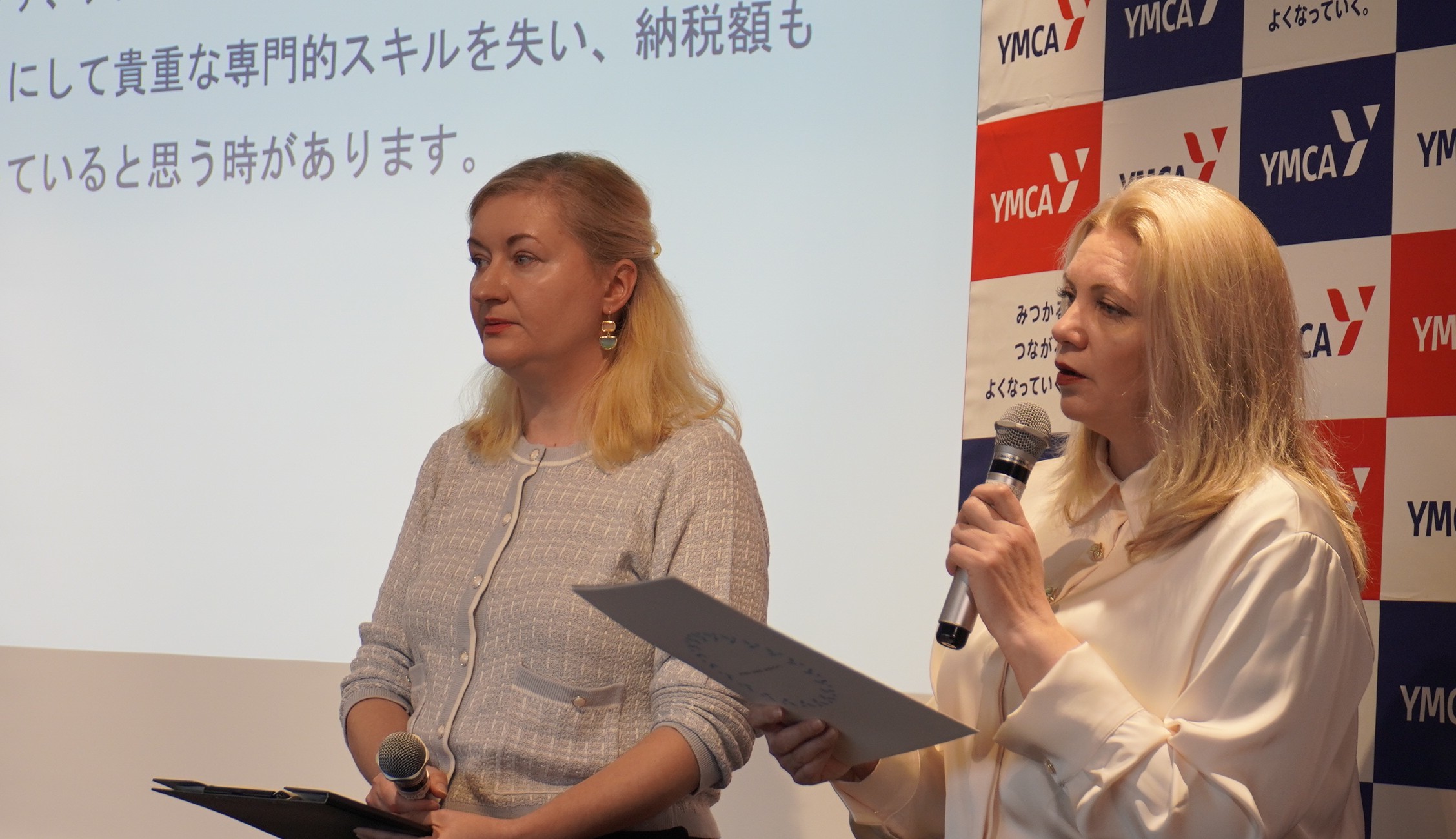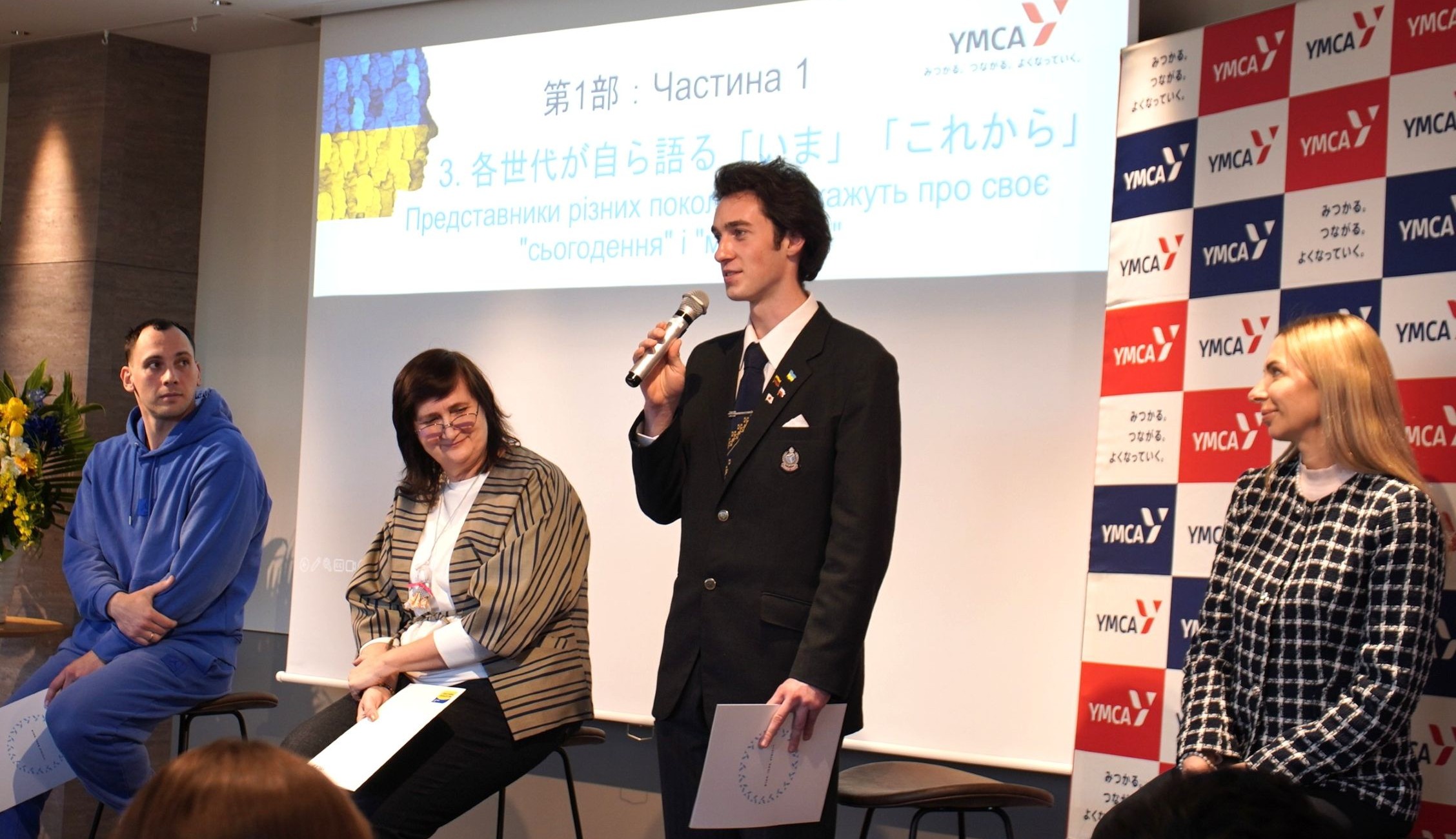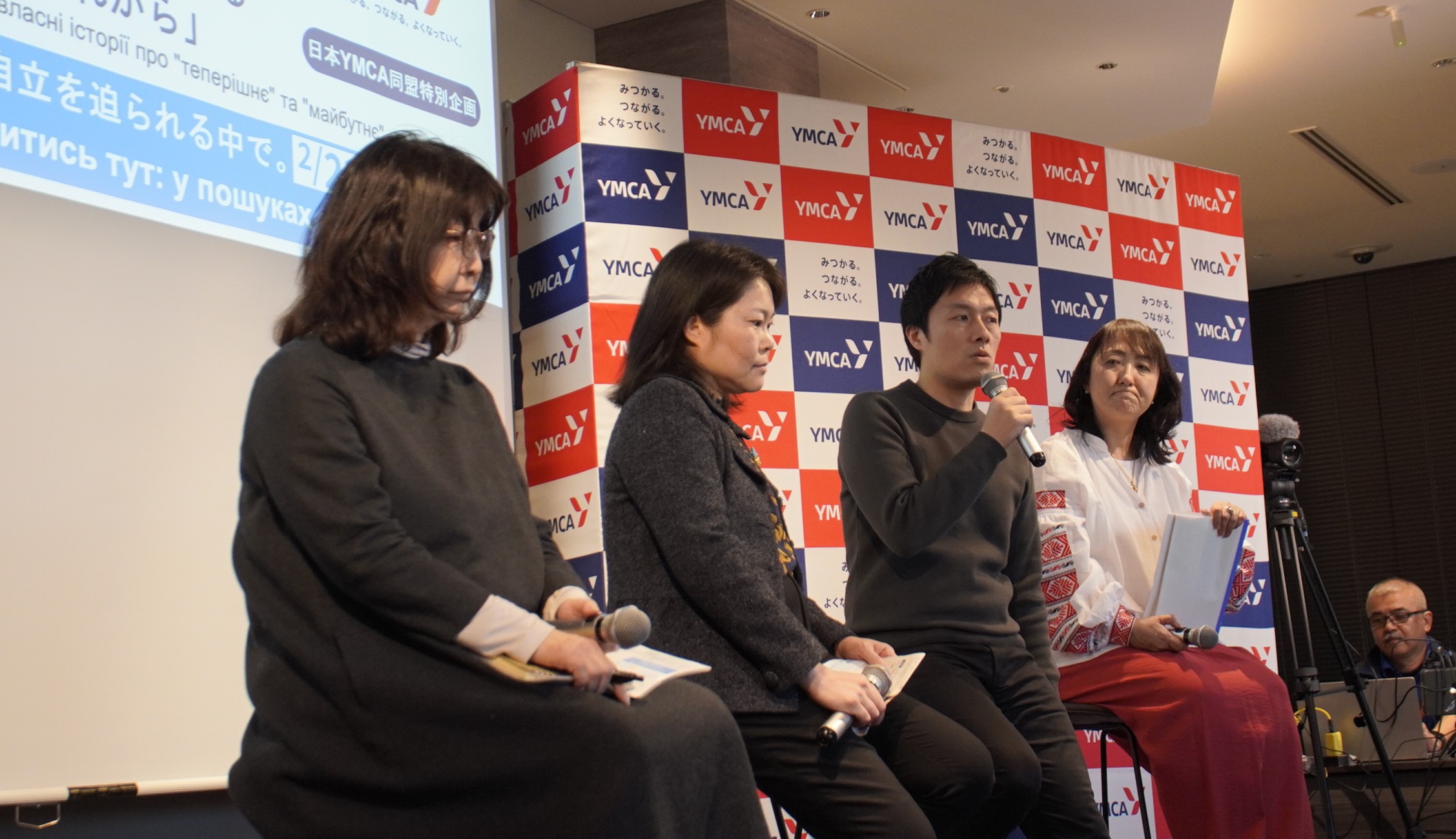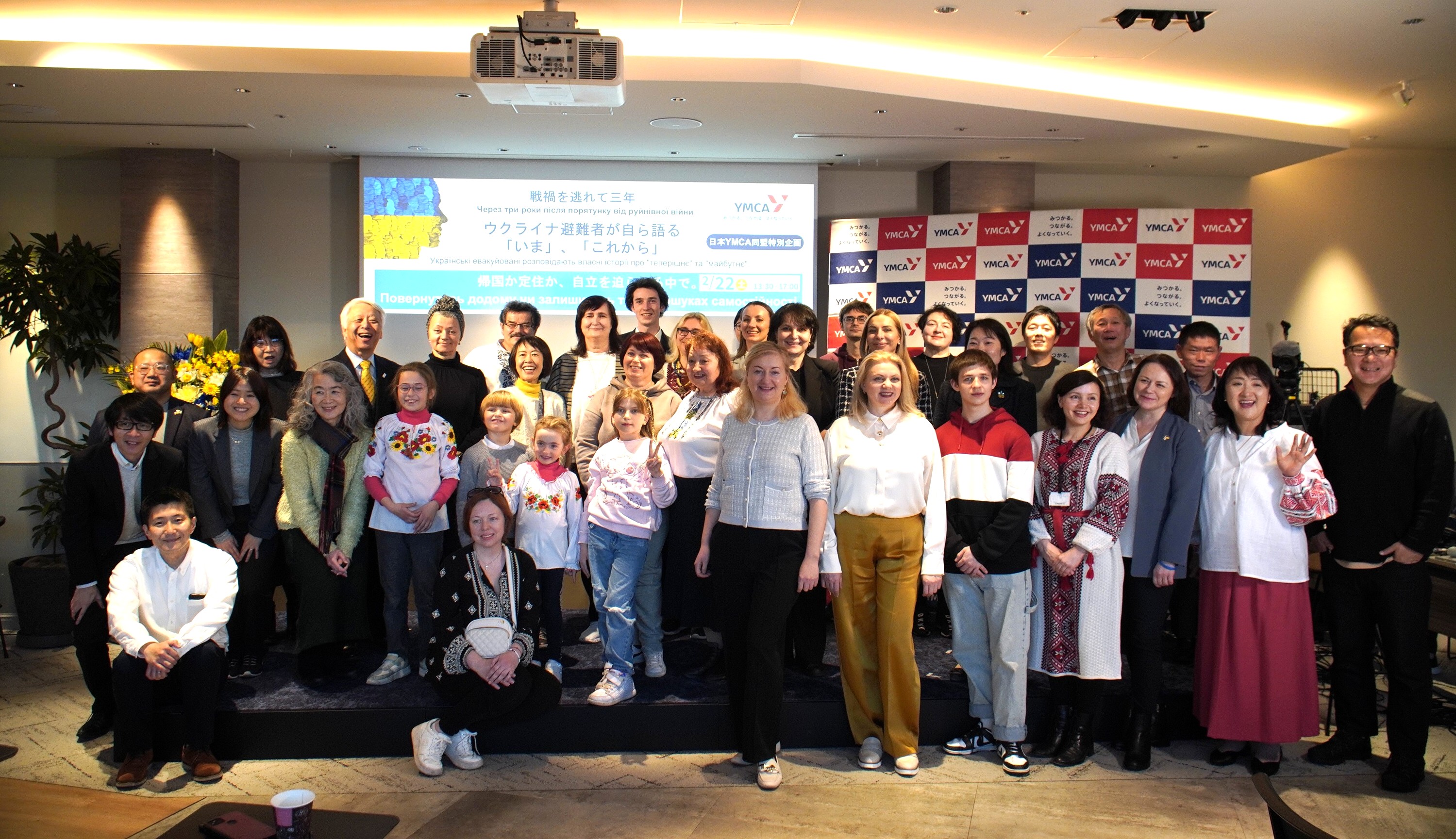Three Years of Ukraine: Evacuees Share Realities Of “Now”
And Thoughts on Their “Future”
Japan YMCA Alliance Special Forum
*この記事は2月27日付け記事「【ウクライナ3年】帰国か定住か 揺れる避難者たち」の英語版です。
On February 22nd, nearly three years since the Russian military invasion of Ukraine, the Japan YMCA Alliance held a special forum; “Ukrainian evacuees share realities of “now” and thoughts on their “future”. Approximately 70 Ukrainian citizens living in Japan as evacuees, along with groups who support them, gathered at a venue in Shinjuku, Tokyo to talk about the current situation and challenges they are facing.
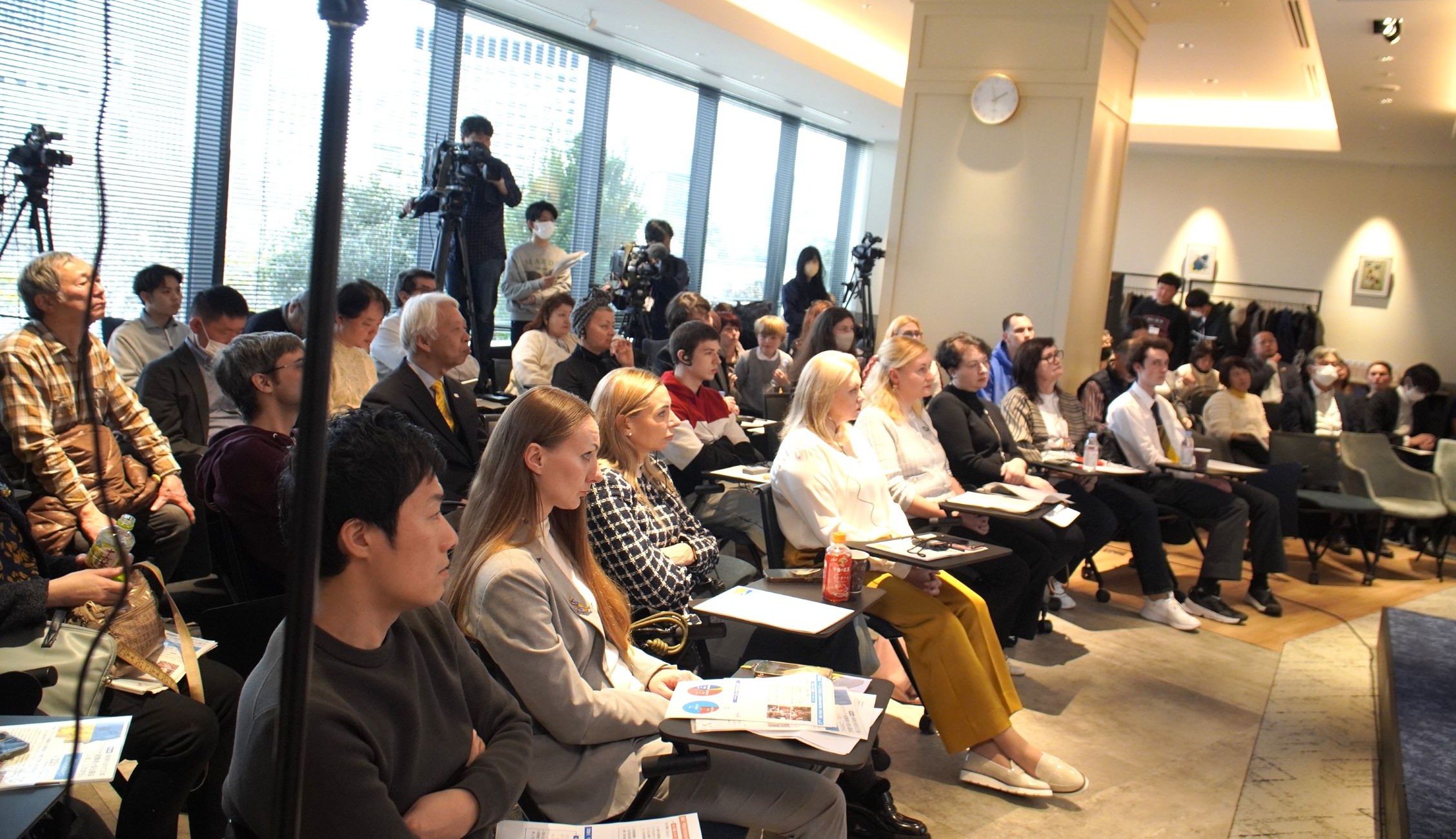
Many members of the press attended the meeting, and the event was reported throughout the media.
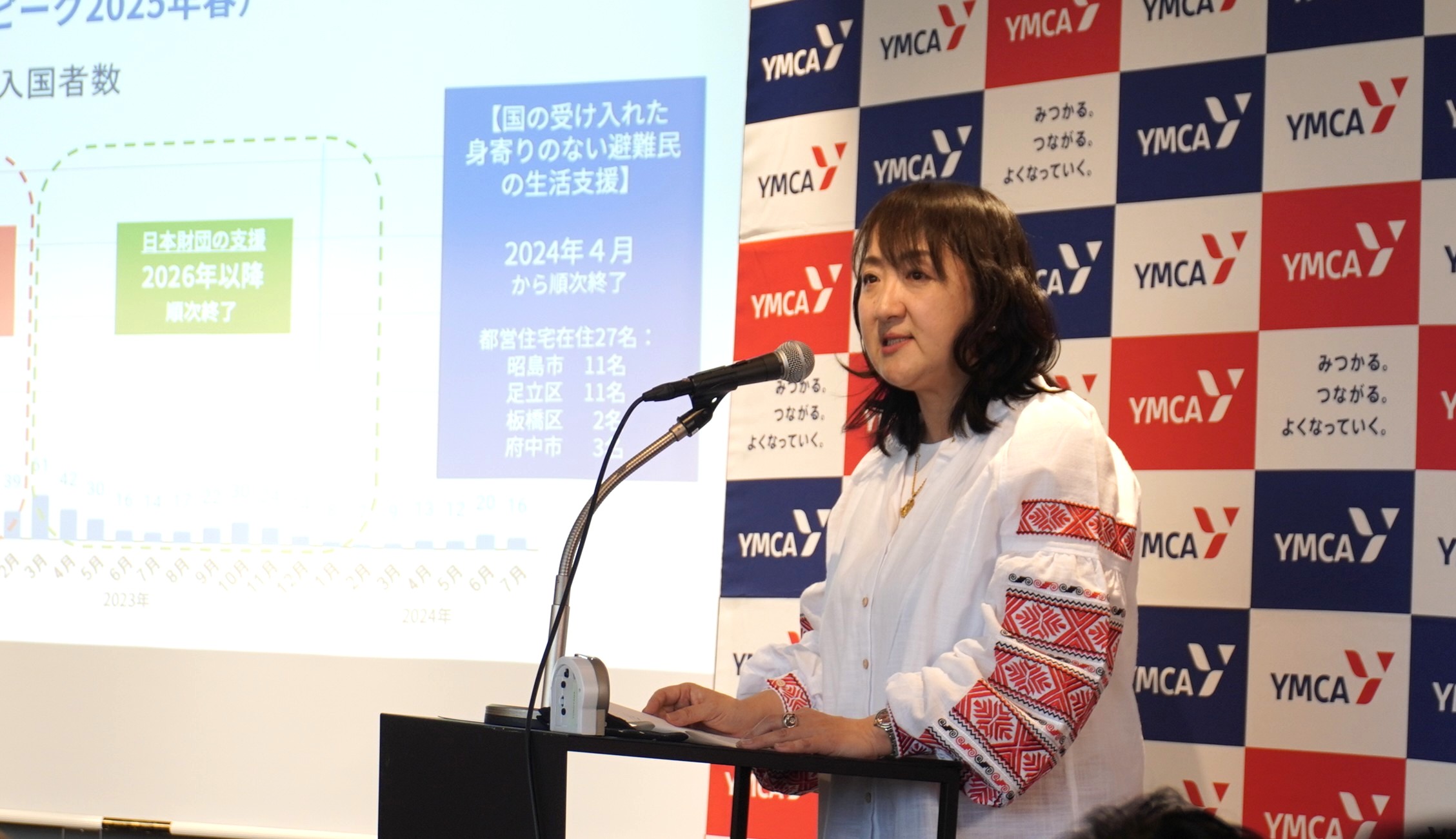
Ms. Yuria Yokoyama of the Japan YMCA Alliance talks about the situation of evacuees based on a questionnaire survey.
From the evacuees’ survey
In January, the YMCA conducted a questionnaire survey, receiving responses from 176 evacuees. According to the survey, when there is a ceasefire or end to the war, only 6% of respondents said they would “return home immediately”. This is less than 10% of evacuees, with 40% saying they would “watch the situation for a while,” and 51.7% saying they would “stay in Japan and try to settle”. This means that more than 90% of respondents said they would like to remain in Japan, expressing concern about their safety and economic situation. Many commented that “we might be attacked again,” and “the eastern part of the country remains occupied by Russia”.
When asked about their future prospects when the Japan Foundation’s three-year living expense support ends, 30% said they would have immediate financial difficulty and 60% said they could survive with support for their housing expenses. This means that 90% of evacuees said they could not survive without some kind of financial support.
Regarding their employment status, 57% were employed and 37% were looking for work. Of those who were employed, 70% were part-timers, and the language barrier limited the types of jobs available to them. Some were even falling ill from unfamiliar physical labor. The backgrounds of many of the evacuees are single-mother households with children up to junior high school age, elderly people, and young students who evacuated alone. The reality is many of them are facing significant challenges to continue working in Japan. As the housing support provided by the Tokyo Metropolitan Government has been extended for one year, some households can afford their living expenses, but continuing support needs to be considered.
